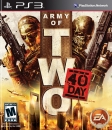happydolphin said:
1@bold. You can't say that. If I report you you're going to get banned, and I want to talk. Stop pegging me in a pigeonhole. What does it matter what religion I believe, I don't have an agenda, I simply trust more the bible than the naturalistic sources you trust. I'm not gonna report you this time but seriously stop.
2@No science backing intelligent design. Do you realize that creation.com is a site filled with a plethora of scientific articles using modern science to explain what they believe to be biblical phenomenon which can be explained by science? In other words, they try to hold the bible accountable to modern-day science. It's not pseudo-science I've gone over this with you a million times. Have you even read some of their articles?
3@Contradictions. I went through your list and there were not many NT ones. The contradictions of the NT I skimmed over were "Scarlet" rather than "Purple" for Christ's robe, or "Vinegar" versus "Wine with myrrh", stuff that makes the sources even MORE credible as these are eye-witness accounts.
And again, I asked for other historical texts that support each other as much. You still haven't provided any.
4@Evolution keeps changing its tune. Are you seriously saying that evolution got it right the first time and didn't change since Darwin?
|
2: Have you ever read an actual scientific article? Not, a summary of an article on FOX; not a report of an article from a second-hand non-scientific magazine or website; not something posted on a forum, but an actual scientific article? Do you even understand what peer-review is? (no, that 'article' on creation.com, which simply resorts to accusations is neither a correct representation of peer-review, nor is it an unbiased critique of it)
To know 'pseudo'-science, you must be able to understand 'actual' science. Science does not tell you the truth. Science employs reason in order to present empirical facts, as we understand and interpret them right now. Science is in many circumstances an (informed) opinion, and quite often its findings are very precise and narrow, and open to re-examination. Science 'facts' can be re-established (or disproven) by conducting independent experiments or research, and these new tests/re-evaluations can be performed by anyone who has a firm grasp of both theory and methodology of the topic at hand. The methodology implemented has to be explained, verified and defended in each and every academic article published.
3: There are contradictions in nearly every historical book. History was not always a science, and in fact even today's historiography struggles to become a science (I would know, as I have studied the field at postgraduate level). There are attempts to implement scientific checks and rigorous peer-review but the fact remains that history is a difficult beast and verges on the point between being an elaborate art-form, and a true scientific topic with appropriate methodologies. What makes you think that 'history' of so many thousand years ago is able to stand rigorous review and analysis? We are barely able to 'argue' the history of Cold War from a scientific/historiographic perspective, let alone be able to verify the historicity of a book that is marginally 'historical' in the first place. Humans have always told stories of the past. The methodologies they used to pass them on have always been questionable, and even today there is huge debate among historians on what constitutes correct methodology in their field. Mythologies from everywhere tend to have historical information that we can extract. Yet, of all the mythological texts, it is the Bible that people most often try to prove or disprove its' historicity.
4: There is no right or wrong in science. Only new information and experiments that may amend or overturn the past. Science does not come from the same place. Not all scientists agree on everything. Science is a process, not a result. Science does not tell or try to tell you 'the truth'. Science is a rational procedure, it is not infallible and may indeed change over time. Freud was still speaking of 'female hysteria', and of course modern psychology completely rejects this concept and notion. This does not invalidate neither Freud nor modern psychology. The diference of science and religion is that science is actually made by thousands of people, with different agendas, different opinions, different backgrounds. Their research is published and is available for any other scientist to review, comment or dispute. If a scientific article is ground-breaking, it will be cited more often, leading to new edits, changes and improvements -- by the original author or team of authors, or by an altogether different team. A new team may even succesfully dispute and negate previous research. Nothing is set on stone.
Religion would instead try to defend the inclusion of 'female hysteria', and attempt to interpret the meaning behind the use of the term. The problem here being, of course, that 'old information' is always interpreted in light of 'new information', in such a way as to always maintain the validity of the old information. It is this forced interpretation that causes all the trouble. Religion is not a science, exactly because religion is infallible.
You can write a PhD on the historical mistakes of science and the philosophy of the scientific method, and it would still be a scientific piece of work, open to peer-review and discussion. Science is not infallible, and it is not a single, unified position on the cosmos. It is merely our current understanding of tiny, extremely particular aspects of it, as we have interpreted from experiment, rational thinking and observation. It is always a case of 'what we know now', based on all available information.





























 you don't know what "generation" means, but as a tip, try not to miss Abraham and Davaid thenselves. Plus the bible quotes generations FROM not generations BETWEEN. In any event here they are: Abraham, Isaac, Jacob, Judah and brothers, Perez (and Zerah), Hezron, Ram, Amminadob, Nahshon, Salmon, Boaz, Obed, Jesse, and David.
you don't know what "generation" means, but as a tip, try not to miss Abraham and Davaid thenselves. Plus the bible quotes generations FROM not generations BETWEEN. In any event here they are: Abraham, Isaac, Jacob, Judah and brothers, Perez (and Zerah), Hezron, Ram, Amminadob, Nahshon, Salmon, Boaz, Obed, Jesse, and David.


















